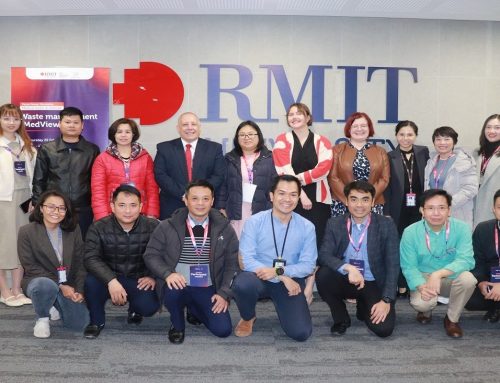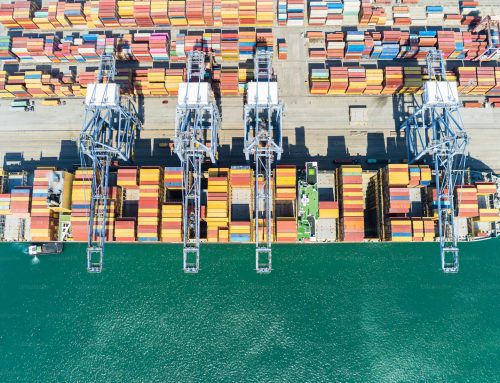26.02.2021
Dr. Ioanna Falagara Sigala, Project Researcher at HUMLOG Institute
The Coronavirus Disease (Covid-19) pandemic has created a worldwide health crisis with an impact not only on peoples’ lives but also on the global medical supply chain network. In our increasingly interconnected world, the protection of citizens and the delivery of the medical suppliers is a huge challenge. There is high connectivity between individual behaviour, political decisions and the delivery of the medical supplies needed to fight the pandemic. On one side, we have the behaviour of individuals that plays an important role in the spread of the pandemic. On the other side, we have political leaders who need to take measures (e.g., impose movement restrictions, export bans) to limit the spread of the virus. Connecting the two, there is the supply chain network that aims to ensure the availability of medical supplies to the hospitals and the public in general.
Thus, there is a complex and interconnected web of institutions and organisations that links regulations and funds with production, imports, exports, wholesale and retail to ensure that medical supplies are available to the end-patient. No country can meet the increased demand for much needed items, such as face masks alone, each and every one of us has a role to play in this pandemic and consequently a responsibility. This impacts the supply chain.
The willingness and readiness of people to wear face masks not only has an impact on the spread of the virus, but on the global supply chain of these items as well. If all people wear face masks, the demand for face masks grows. If it grows exorbitantly and suddenly, it cannot be met by the existing production capacity. If people do not wear a face mask, the virus spreads even more leading to even higher demand for face masks.
During the first wave of Covid-19, the demand shocks of medical supplies, especially of personal protective equipment (like face masks) caused extreme bullwhip effects. The unpredictable and unstable manufacturing environment, where suppliers struggle to predict demand as a result of panic-driven consumer behavior, caused price fluctuations and shortages. This led many EU (and other) countries to forget the fundamental principle of free movements of goods and to impose export bans for essential medical supplies, such as face masks, ventilators, hand sanitizers and gloves. In addition, the lockdown that many countries imposed had an impact on the free movement of people. As a result, workforce participating in the production of essential medical supplies could no longer cross the borders. Airlines reduced or stopped passenger fights leading to fewer transportation options for medical supplies and to increased transportation costs. On top of all that, the import of sub-standard face masks from China led US and European authorities to more quality control checks resulting in longer lead times when importing items.
The Covid-19 pandemic demonstrated the need to increase the medical supply chain responsiveness. To better prepare for future pandemics, it is necessary to reshape medical supply chains and to develop chains that are more flexible, responsive and agile. In addition to standard supply chain responses, such as pre-positioning of medical supplies and multi sourcing strategies, there is a need for more coordination and cooperation between public authorities and private companies. In other words, there is a need to design policies and regulations that facilitate the production and distribution of medical supplies during emergencies. The private-public sector cooperation ought to ensure that the private sector can be ready to switch production lines in short notice, thus ensuring the availability of essential items.
For a better understanding of how individual behavior, governance, supply chains and social media are inter-connected and impact the response to Covid-19, follow the results of the EU-H2020 funded (grant ID: 101003606) Health Emergency Response in Interconnected Systems (HERoS) research project.
Hanken School of Economics leads a consortium of four universities (Hanken School of Economics, Free University of Amsterdam, Delft University of Technology, The Open University-UK) and seven other organizations (Nordic Healthcare Group, Space Research Centre of Polish Academy of Sciences, Squadron, Polish Center for International Aid, Italian Red Cross, Project Hope, ARTTIC). The overall objective of HERoS is to improve the effectiveness and efficiency of the response to the Covid-19 outbreak. HERoS creates and provides policies and guidelines for improved crisis governance, focusing on responders to public health emergencies, and their needs to make informed decisions. By integrating governance, supply chain management, information, and epidemiological modelling from the bottom-up, we provide new insights into the behavioral and social dynamics of the Covid-19 epidemic. The project results will be translated into actionable recommendations for responders at the local, national and international level.




